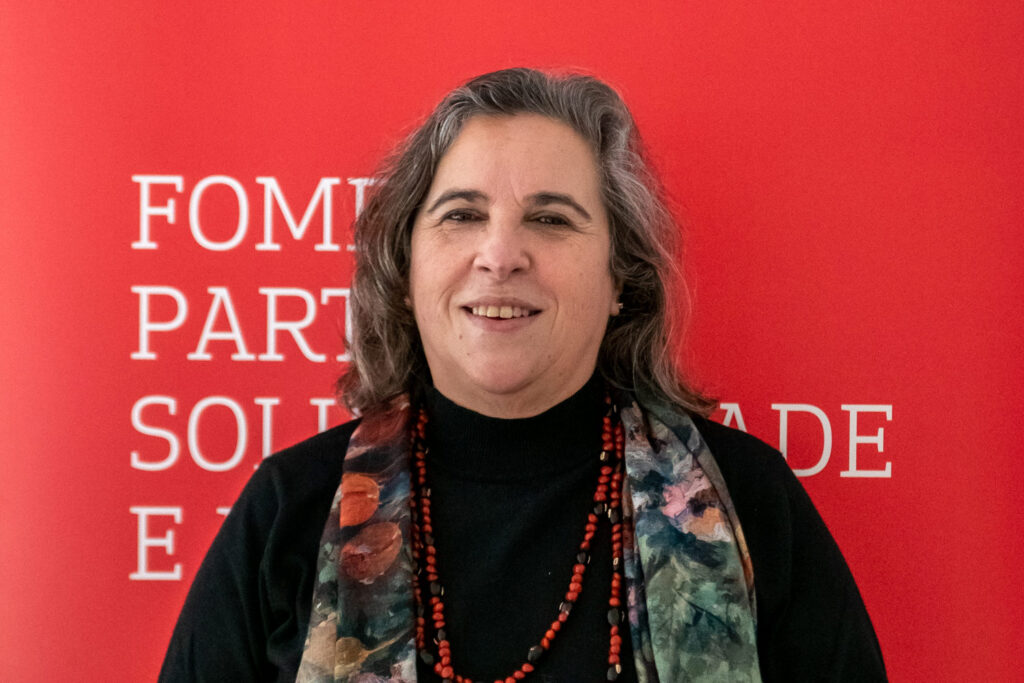Half of the families supported by Caritas in the pandemic asked for help for the first time, to pay rent, water or electricity, and this demonstrated the need for a plan of resilience to respond to another crisis.
Between May 1, 2020 and October 1, 2021, Caritas supported 18.097 people, representing 6.610 families, with almost half of these (3.042) asking for help for the first time.
In an interview with Lusa news agency, the president of Cáritas highlighted the fact that 50% of the families supported by this organization of the Catholic Church have never asked for help before and bring “completely different” requests.
“We are talking about requests for rent for a house, water, electricity, in the first phase when we were all confined until the internet became a first priority. The kids to study needed to have internet and the families were not able to have this access”, recalled Rita Valadas.
About to complete a year at the head of Cáritas Portuguesa, Rita Valadas pointed out that these families were not the same ones who usually turned to Cáritas in search of help and that this was evidence of how it was necessary to create a different support program.
As he explained to Lusa, “two-handed” support was created, with, on the one hand, financial support for situations such as those described by the president of Cáritas and, on the other hand, vouchers food.
According to Rita Valadas, the vouchers proved to be very important in two types of situations: "one when a special diet is needed" that the food in the baskets does not guarantee, and for the cases of families victims of economic poverty, which, he stressed, "often entered through someone's door. it hurts and they suddenly find themselves in need of support”.
Created in April 2020 to work for just a few months, the program “Inverting the poverty curve in Portugal” ended up being extended until the end of the year and is still in force, having invested almost 443 thousand euros in support of the more than 18 thousand people.
Through emergency support alone, Cáritas helped 3.603 people (1.486 families) with 230.408 euros, having also helped 14.494 people through essential goods vouchers worth a total of 212.010 euros.
The data from Cáritas show that the main reasons for requesting financial support had to do with situations of unemployment, sick leave or indebtedness, but also cases of insufficient wages or pensions to cover the household expenses.
In 62% of cases, families asked for help to pay the rent for the house, 15% to cover health expenses, but also to pay the electricity bills (13%), water (5%), gas (2%) or telecommunications (1%).
For Rita Valadas, the program “Inverting the poverty curve in Portugal” brought “several lessons”, the first of which that Cáritas needs a “resilience program” that can quickly face another crisis.
“Back in 2008 we had to quickly position ourselves to respond and now the same thing has happened, because the families who resort to these crises are not the same as those that are usually on our radar, they are completely different and will be atypical depending on the crisis that put yourself,” he explained.
The State, on the other hand, "has another time", said the official, and the measures created by the State, despite being structuring, end up being transversal to the creation of the support cushion, but they are slower and "in the first phase it was only the solidarity sector that gave an answer”.
Rita Valadas believes that the country will have "deep inequalities" and added that there has not yet been a reduction in the number of requests for help reaching the 20 diocesan Caritas, pointing out as a possible explanation the fact that the end of the layoffs and the defaults are “very recent” and the consequences are not instantaneous.
With the economic crisis joining the pandemic crisis, the president of Cáritas defended that measures should be considered on a European scale and admitted to having some fears about the future.
On the one hand, that the end of layoffs do not allow companies to resume their recovery and, on the other hand, that the international crisis may further compromise this recovery, which would lead to more people ending up in unemployment.
"It is after the end of unemployment benefit that things may or may not go downhill because if there is not enough economic recovery, even these people who fall into unemployment will not be able to find alternative employment and so my fear sheets are all in that board”, he stated.
Rita Valadas defended that it is necessary to know how to read reality beyond the numbers and underlined that the “social crisis is much more difficult to read, it is very quick to happen and takes much longer to disappear”.



















Comments